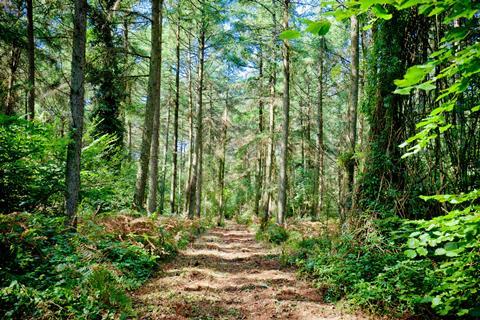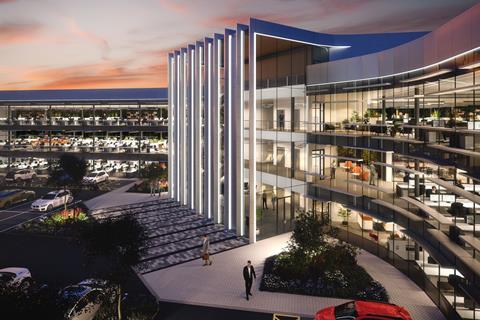Few traditional industrial sectors are as focused on how to minimise their environmental impact as construction
If only the solutions to the world’s environmental challenges were as simple as they appear in some social media comments. Keyboard warriors like to reduce all complexities to binaries: good or bad; right or wrong. It suits their narrative. But the world is rarely that simple.

And that is certainly true of carbon neutrality in the construction industry, often labelled “greenwash” by social media warriors. If you could see through the layers of our sector, you would find a myriad of ecological challenges in every labyrinth – from transport to materials to projects to suppliers to the operation and life of buildings. Unwinding and resolving those layers is a colossal task to which many of us in the sector are fully committed.
Our sector is on a journey to decarbonise business as usual, but we need a deeper understanding of the issue – and we need to support each other in achieving our environmental aims. Instead of negative armchair activism, let’s use social media as a platform to share best practice across the sector and enact positive change to outdated procurement and operational approaches.

As part of its carbon neutrality programme, Beard Construction purchased a 180-acre woodland on the edge of Bristol to offset some of its environmental impact with carbon sequestration. Woodland is considered one of the best forms of sequestration as it stores twice as much carbon as it emits. Caring for and further developing this carbon stock will help compensate residual emissions as we transition towards a state of net zero. Despite that, similar purchases have received criticism on social media as “grade-A greenwash”.
Instead of negative armchair activism, let’s use social media as a platform to share best practice across the sector
Frankly, I would agree with that view – if purchases like this were all that our sector were doing. But the truth is that few traditional industrial sectors are as focused on how to minimise their environmental impact as construction.
Initiatives like BREEAM assessments, for example, apply rigorous measures to assess best practice in sustainable building design, construction and operation, while Passivhaus is a leading international design standard, slashing energy use from buildings and delivering high standards of comfort and health.
And the UK Green �ڶ����� Council’s (UKGBC) Whole Life Carbon Roadmap has created a common vision and agreed actions for achieving net zero carbon in the construction, operation and demolition of buildings and infrastructure.
>>Also read: Countdown to zero: how can the UK meet its 2050 carbon targets?
>>Also read: Bashing government on net zero progress feels good but does it get us any closer to our targets?
These initiatives are more than just industry virtue-signalling – they translate into real environmental actions on real projects. Like Beard’s redevelopment for Commercial Estates Group (CEG) of Aztec 1000, for example, which will be the South-west’s first net zero carbon development, in line with UKGBC’s framework.
On this project, our environmental responsibility began with carefully preserving the original structure of the building. Repurposing the 1980s steel framework will mean significant embodied carbon savings during the build. Once in operation, the building will target net zero carbon and be powered by renewable energy via an array of photovoltaic units on the roof, as well as using energy-efficient heating, cooling and lighting systems. The building will meet BREEAM Excellent and EPC A standards.
Beyond individual projects, Beard’s commitment to sustainable, low carbon construction is mandated by the board and we have pledged to achieve net zero by 2050, in line with the UN’s Net Zero Coalition. That target is, however, likely to be achieved much sooner for us.

Over the last two years, we have achieved a 9% reduction in carbon intensity and are well on our way to reducing it by 25% by 2025. We have realised this through various green initiatives including electric vehicles, reducing unnecessary travel, energy generation and other efficiencies. Most importantly, any environmental plans we make will be scientifically validated.
And we’re not alone in making these commitments. Many other firms in our sector are similarly focused on minimising their environmental impact in ways that are genuine and sustainable.
It won’t be an easy process. And it will take time. That is the reality of the size and complexity of the challenge we face to accomplish carbon neutrality. But armchair activists should be in no doubt of our sector’s resolve to achieve it.
Mike Hedges is a director of Beard Construction



























1 Readers' comment